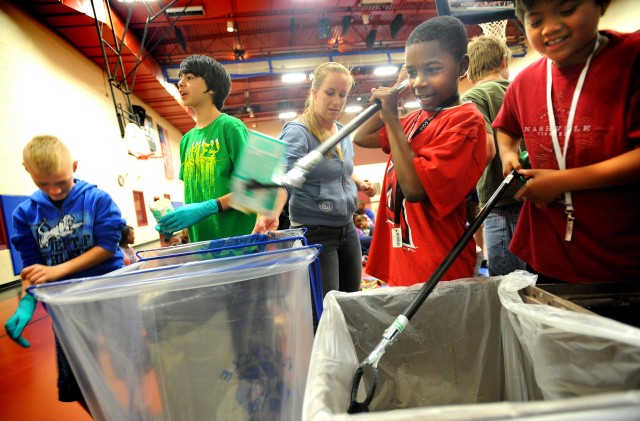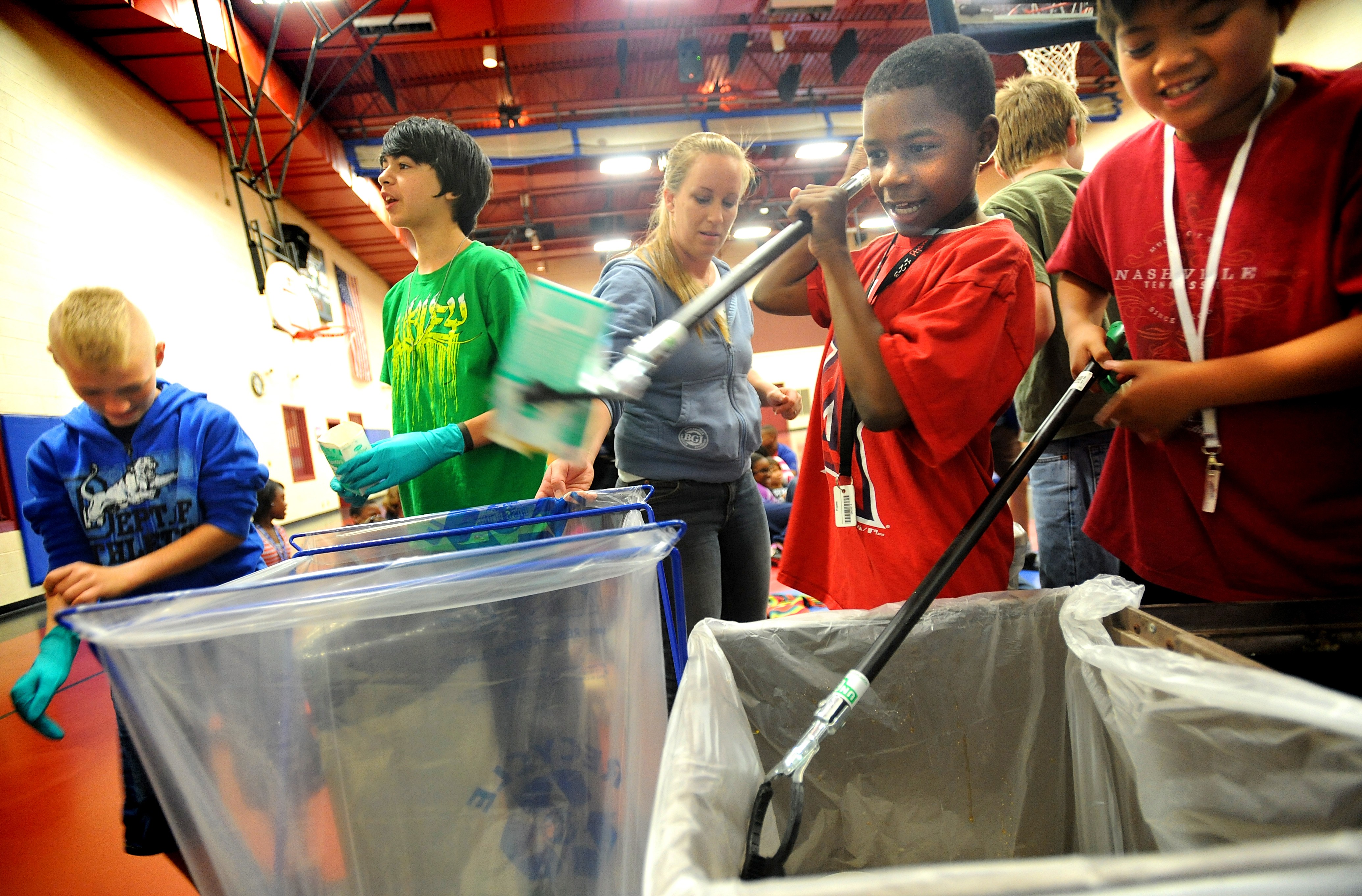
JOINT BASE LEWIS-MCCHORD, Wash. - There's an Earth-friendly movement afoot at Child Development Centers on Joint Base Lewis-McChord.
A team of sustainability experts is partnering with the CDCs to deliver a simple message: Reduce, Reuse, Recycle.
Earlier this month, about 60 middle and high school-aged students at the Lewis Main Teen Zone learned more than just the basics about the benefits of environmental responsibility.
"Reducing is one of the best things that you can do," said Miriam Easley, the JBLM sustainability outreach coordinator and one of the resident experts. "If you're going to look at the three R's ... reduce and reuse are probably the best two."
Easley told the crowd of energetic teenagers gathered at the Teen Zone that a lot of adverse environmental degradation is a result of too much production in the first place.
She then introduced them to a growing problem in the world's oceans.
"Has anyone heard of the Great Pacific Garbage Patch - this giant mass of trash'" Easley asked.
Most of the students shook their heads to indicate they hadn't.
Easley showed them a video that discussed a continent-sized, "thin plastic soup" swirling about in the ocean gyres.
Comprised of flotsam, ocean debris, and confetti-sized plastic particles, this "soup" is ingested by fish and other marine life. Eventually, humans consume the pollutants when they eat fish like Tuna or Mahi-Mahi.
The chemical bisphenol A, or BPA, is a key ingredient in plastics and has been found to exist in the affected fish and the bodies of most humans. According to the video, some scientists see a link between what is floating in the oceans and what ultimately ends up in the human body.
The video suggested cutting back on the use of petroleum-based products like plastic bags, utensils and bottles, which ultimately are designed to be thrown away, and instead embrace products that can be reused, such as canvas shopping bags and stainless-steel water bottles.
To solidify the concepts learned from the video, Easley had the teens do a "trash audit" on the Teen Zone's garbage.
"We're going to grab some of your trash cans," she said, "and go through them and see what could have been recycled."
Despite a loud chorus of "Ewww!" several teens donned latex gloves and volunteered to dig through the trash.
Stephanie MacKenn, 12, found a half-full plastic Coke bottle. Not wanting to throw it away, MacKenn carried the bottle to the nearest sink and disposed of the liquid. She then rinsed out the bottle and placed it in the recycling container.
"So, what do you think about recycling'" asked Brandi Wagner, a DPW Solid Waste program technician and Easley's teaching partner.
"It's better for the world," MacKenn said.
Emily Pluedeman, the Teen Zone assistant facility director, was happy to have the sustainability team share its expertise with her students.
"It was nice to bring them in (to) show the effects with the video," Pluedeman said, "and then also dig through the garbage and ask (them), 'Hey, you're throwing your milk cartons away' You can recycle those and it will help the whole environment in the long run.'
"Teens are gross," Pluedeman said, "so picking through the garbage, to them, was like a highlight of their day - they loved it."
Easley thanked the teens for braving the trash cans and encouraged them to recycle at home, too.
"We have six sustainability goals here on Joint Base Lewis-McChord," she said. "And our goal that focuses on waste is zero net waste by 2025. That means we want no waste leaving this installation by 2025. We've only got about 15 years to (make) that."
The sustainability team has been working with the youth centers for several years and is now trying to ramp up its efforts to reach more people.
"My goal is to give these kids the information they need to make sustainable choices," Easley said. "Children play such a big part in creating a sustainable future. Sometimes, the kids get the environmental issues we face more than the adults and if we listen, we can learn from them."
Ingrid Barrentine is a photojournalist with Joint Base Lewis-McChord's weekly newspaper, the Northwest Guardian.

Social Sharing